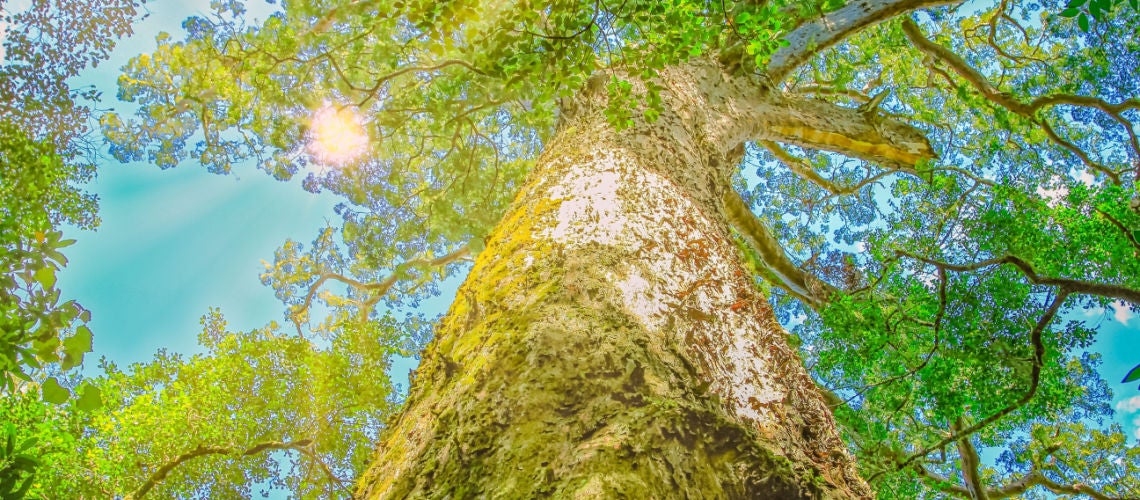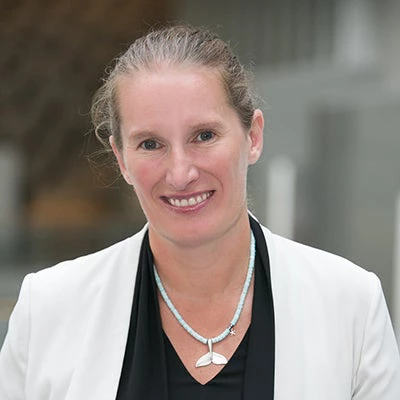 Photo credit: Benny Marty/Shutterstock.com
Photo credit: Benny Marty/Shutterstock.com
We are emerging from decades of a “grow now, clean up later” mindset that delivered development dividends, while hiding a host of social and environmental issues. In 2020, this paradigm hit headfirst into the realities of a global pandemic, worsening climate change, and conflict. Across poor countries and in poor communities, people who had only marginally benefited from development were the first to experience its shortcomings.
Natural capital - nature’s bounty - is the wealth of the poor. Its degradation and loss are their burden to carry. Degradation of nature could cause the poorest countries to lose 10% of their GDP annually by 2030. The loss of pollinators due to habitat destruction and pollution will affect 75% of food crops, reducing productivity and increasing food scarcity and food prices. This isn’t just a risk for the faraway future: hard won development gains are already at risk.
But past is not prologue. Nature is no longer at the fringes of the development agenda, but at its heart, as reflected in commitments at the latest UN general assembly, the UN COP27 on climate and COP15 on biodiversity. Indeed, the Global Biodiversity Framework (GBF) approved at COP15 spells out a global plan to protect nature and make sure it can be a long-term engine of jobs and growth while helping reduce carbon emissions.
Here is how we plan to support countries and communities as they transform this commitment into impact:
- Investing in data and analytics. Understanding and measuring the value of nature is fundamental. It is essential that nature is captured on public and private sector balance sheets so that the right decisions can be taken. For example, Uganda has some of the most biodiverse forests in Africa, serving as the backbone of the country’s nature-based tourism. These forests, though, are disappearing at a rate of 2.6% a year. Estimates put the overall cost of environmental degradation in the country at 17% of GDP. The Global Program on Sustainability made it possible for Uganda, and 27 other countries, to develop data and tools allowing to measure the contributions of these resources to the economy and consider them for policy decisions.
- Expanding the coalition of partners committed to nature-positive development. Investing in nature requires a whole-of-government approach, which is why we work across cabinet ministries and levels of government, for instance through the Amazon Sustainable Landscapes Program. But the success of the Global Biodiversity Framework will go beyond government and requires whole-of-society action. The Bank-led Dedicated Grant Mechanism builds the capacity of indigenous peoples and local communities (IPLCs) to represent their own interests, implement activities, and co-own the nature agenda in their communities and countries. We will also continue to work with the private sector to green financial flows and investment decisions and mobilize additional funds for biodiversity, including continuing to work with central banks to understand the relationship between their domestic financial sector and nature.
- Moving beyond conservation alone. Much of the attention around the Global Biodiversity Framework has focused on the goal to protect 30% of the global land and seas to make space for nature. But we can’t risk creating islands of biodiversity in a global parking lot. What we do across the entire land and sea matters, from ridge to reef. This means we need to prioritize nature when working across all development sectors. Consider the agriculture sector: it is the foundation of food security, yet extremely vulnerable to climate change and a major contributor to greenhouse gas emissions as well as habitat and biodiversity loss. Initiatives like our Climate Smart Agriculture Investment Plans deliver the triple win of increasing productivity, protecting food supply, and reducing emissions – while protecting biodiversity.
- Mobilizing finance at speed and scale. At COP15, the discussion largely focused on the quantity of finance needed. We agree more is needed, from all sources. We provided $2.8 billion in direct support to biodiversity in the last fiscal year (July 2021-June 2022) and are committed to increasing our investments , while also ensuring they do not harm nature. But as important as quantity is access to finance, which means reducing the current fragmentation and making sure finance goes where it is most needed. We are committed to removing barriers for Least Developed Countries, Small Island Developing States and indigenous people to benefit from our financing. This means building platforms and programs through which indigenous communities can become direct recipients of finance and identifying trusted intermediaries who can support them in the meantime.
- Not forgetting pollution. Pollution causes nine million premature deaths per year, 95% of these in low- and middle-income countries. But polluted air, water, and soil are not just poisoning people; they are undermining educational outcomes, undercutting productivity, and increasing healthcare costs. Unmanaged plastic pollution produces fishing grounds littered with waste or livestock sickened from eating trash, both of which introduce plastic into our food chain. The World Bank helps countries address pollution not only by managing waste, but by supporting a shift towards more circular economies and sustainable consumption and production choices.
When I joined the World Bank in 2003, nature was niche work. Today things are different . We know more, especially about the importance of natural capital to our fight against poverty. We do more too. In the last 20 years, we have built a record of integrating development, climate, and nature. We have also built a record rewarding low-income countries for hosting and producing public goods while protecting them from unfairly bearing the burden of public “bads”. And by advancing our joint efforts, I trust we can help unleash nature as an engine of green, resilient, and inclusive development.


Join the Conversation